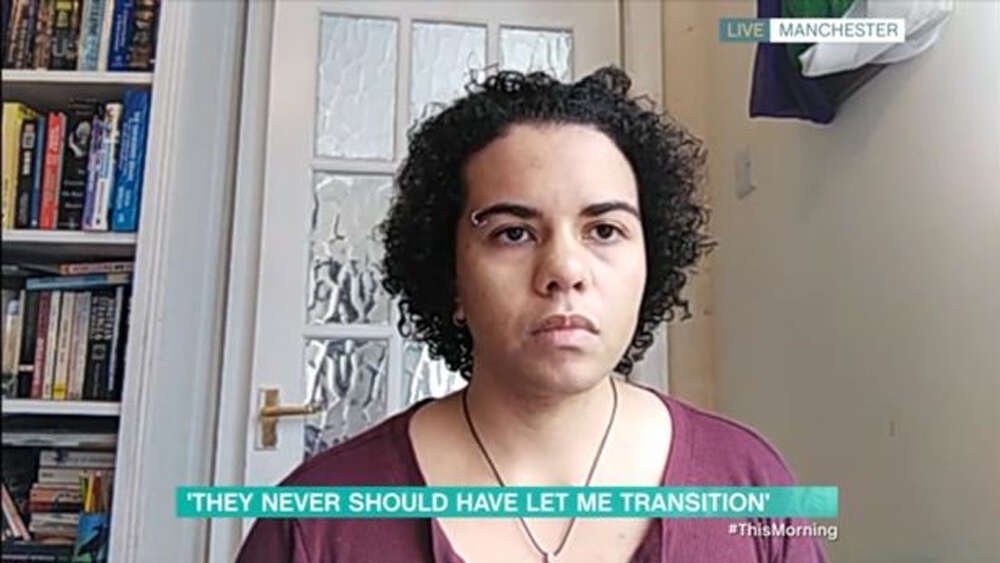Court review of transgender treatments removed in the UK
Doctors can judge if a young teenager is mature enough to decide use puberty blockers, a key stage in transgender treatments, the UK Court of Appeal has ruled.
This overturns an earlier judgment in a case brought by a de-transitioner Kiera Bell who was prescribed puberty blockers at the age of 16. She prescribed the puberty blockers after three one-hour sessions, and part of the has been about whether this was adequate.
The new ruling means that drugs and cross-sex hormones for under-16s will be used when approved by a doctor or clinic rather than by a court.
“The treatment of children for gender dysphoria is controversial,” the Justices of the Appeal court wrote. “Medical opinion is far from unanimous about the wisdom of embarking on treatment before adulthood. The question raises not only clinical medical issues but also moral and ethical issues, all of which are the subject of intense professional and public debate.
“Such debate, when it spills into legal proceedings, is apt to obscure the role of the courts in deciding discrete legal issues. The present proceedings do not require the courts to determine whether the treatment for gender dysphoria is a wise or unwise course or whether it should be available through medical facilities in England and Wales. Such policy decisions are for the National Health Service, the medical profession and its regulators and Government and Parliament.”
One interesting aspect of the Appeal court’s analysis of the evidence is that the earlier judgement stated the “vast majority of patients taking [puberty blockers] go on to [cross-sex hormones] and therefore that s/he is on a pathway to much greater medical interventions.” However, the Appeal court points out that the “evidence filed by Tavistock [the gender clinic] indicated that more than half of those who embark upon a course of puberty blockers go on to cross-sex hormones.”
The question of whether there is a correlation between the early puberty blocker treatment and whether patients go on to further treatment is disputed. the Judges conclude, “The point, however, is that these judicial review proceedings did not provide a forum for the resolution of contested issues of fact, causation and clinical judgement… we have concluded that the declaration implied factual findings that the Divisional Court was not equipped to make.”
As with the earlier trial, the key discussion in the Bell appeal is at what age is a young person able to understand and therefore consent to the treatment.
Whether a child is able to consent to their own medical treatment is known as ‘Gillick competence’ the judges took the view “the principle enunciated in Gillick was that it was for clinicians rather than the court to decide on competence.”
Accordingly, they reversed the finding of the lower court, leaving it up to clinicians to make the decision as to whether a patient is Gillick competent.
However, the gender clinic involved, Tavistock, did not escape criticism from the bench.
“The parties showed us an example of a Care Quality Commission report in January 2021 critical of GIDS [Gender Identity Development Service, operated within the Tavistock and Portman NHS Foundation Trust referred to as ‘Tavistock’], including in relation to aspects of obtaining consent before referral by Tavistock, which illustrate that. The fact that the report concluded that Tavistock had, in certain respects, fallen short of the standard expected in its application of the service specification does not affect the lawfulness of that specification; and it would not entitle a court to take on the task of the clinician in determining whether a child is or is not Gillick competent.”
The National Health Service is conducting a Independent Review of Gender Identity Services for Children and Young People. Known as the Cass review after its chair Dr Hilary Cass it will make recommendations about the services provided by the NHS to children and young people who are questioning their gender identity or experiencing gender incongruence.
The operation of Tavistock and GIDS is the focus of this review. It will examine the use of hormones and explore “the reasons for the increase in referrals and why the increase has disproportionately been of natal females and the implications of these matters.”
Kiera Bell has announced that she will appeal the Appeal court decision, telling the BBC she had “no regrets” about bringing the case, which she said “shone a light into the dark corners of a medical scandal that is harming children and harmed me.
“I am obviously disappointed with the ruling of the court today, and especially that it did not grapple with the significant risk of harm that children are exposed to by being given powerful experimental drugs.”
Email This Story
Why not send this to a friend?




